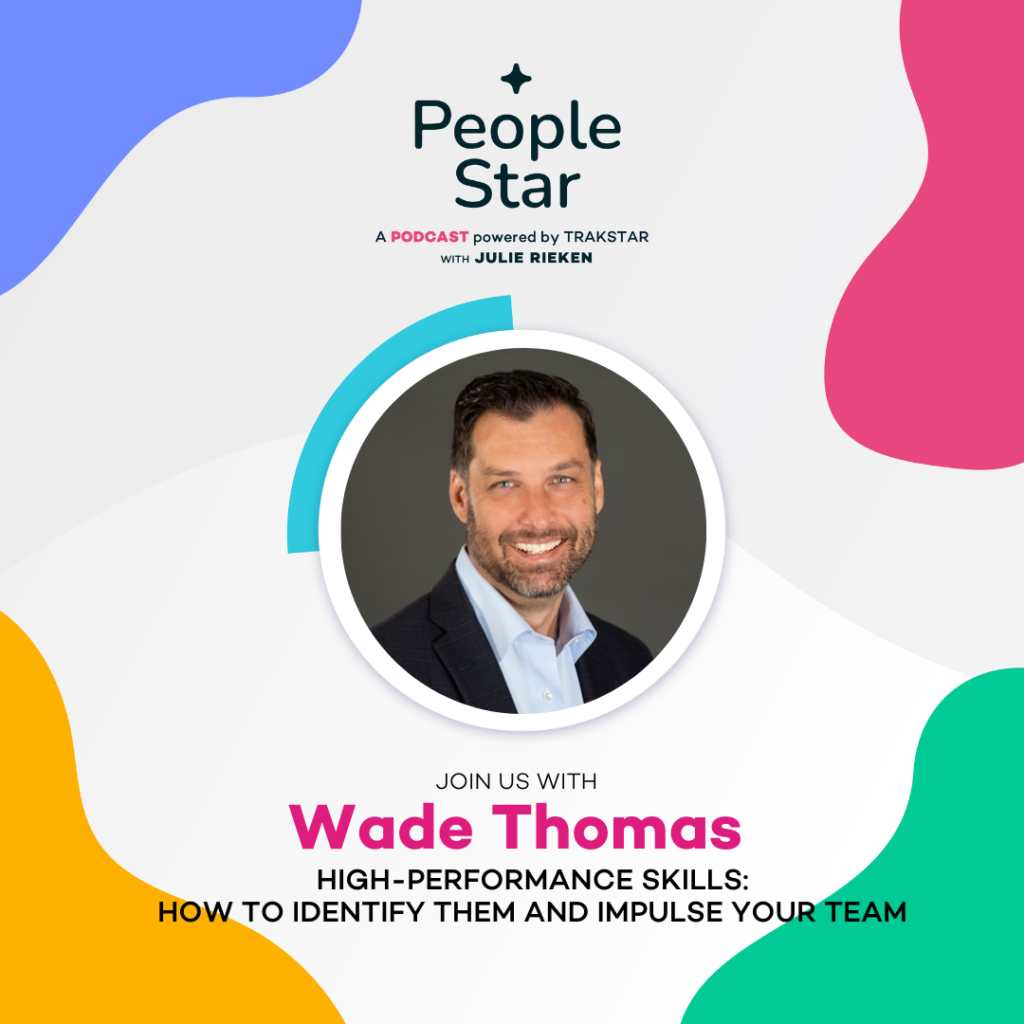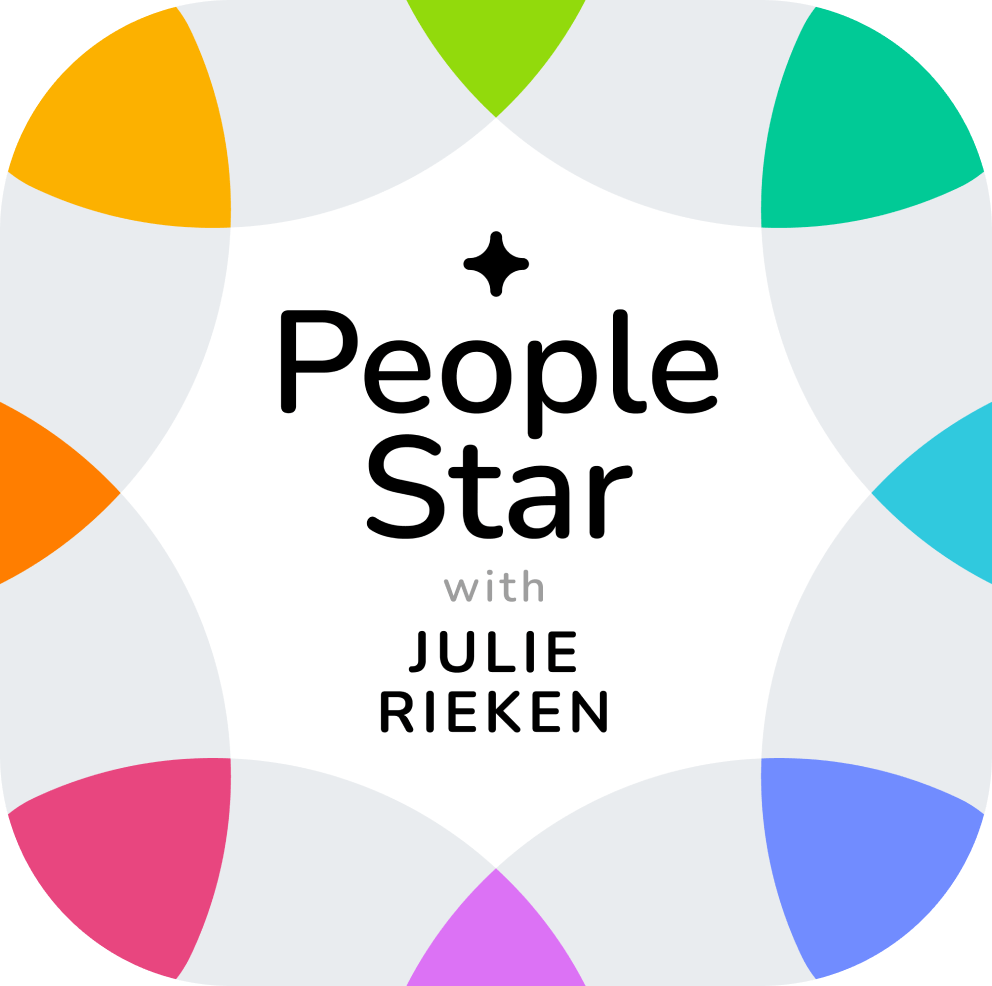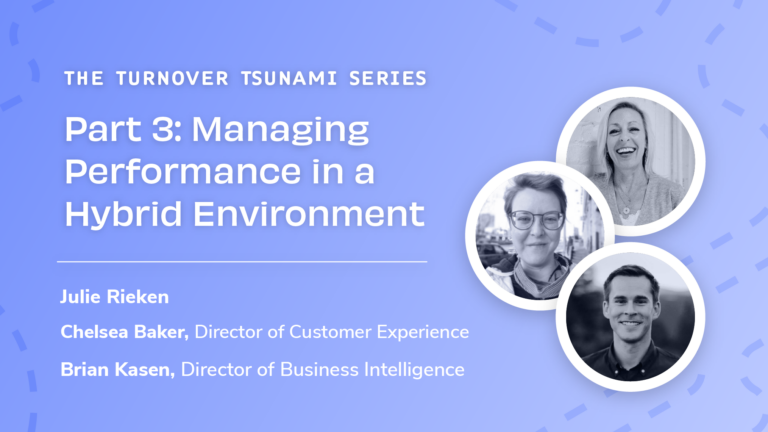People Star Interview_Wade Thomas: this mp3 audio file was automatically transcribed by Sonix with the best speech-to-text algorithms. This transcript may contain errors.
PeopleStar Podcast Intro:
Welcome to the PeopleStar Podcast. We deliver leadership perspectives from industry experts on their people, architecture, routines, and culture as they solve HRs newest challenges. And now your host, Julie Rieken.
Julie Rieken:
Hello, it's Julie Rieken, host of the PeopleStar Podcast, and I am thrilled today to have Wade Thomas of Aim To Win here to join us, and Wade has a super cool background. For over two decades, he served as a strategic talent executive, guiding leaders to develop and shape organizations from the perspective of high-performance management coupled with compassion and empathy, and I'm super interested in that way. You are the founder and CEO of Aim To Win, you've coached and consulted hundreds of leaders who are now practicing these principles and bringing out the best in high-performing individuals that are equipped to achieve organizational excellence and business growth, which I know is of interest to all of us today, how do we find and develop high-performing people, especially during these really tough times as all of our organizations are experiencing some turnovers, some churn, and pieces like that, so Wade, welcome to the podcast!
Wade Thomas:
Thanks. Thanks for having me. I love talking about this subject.
Julie Rieken:
I'm totally excited to hear from you. I am looking at high-performance coupled with compassion and empathy. I'm interested in how did you arrive to these two things and how did you end up at Aim To Win and founding this organization?
Wade Thomas:
So that's a long answer, but I'll keep it as succinct as possible. So the compassion-empathy thing, although I call it, different language, back then, really started early in my career. I had, I was in my mid-20s, fresh out of graduate school, my very first HR job, I was in a corporate rotational program that ended up for about six months. They threw me into a manufacturing plant. This wasn't just any manufacturing plant, this is a plant that was about five years old and struggled from its inception, it never made a dollar, was just bleeding money, they got a union because management just treated them terribly, and they had just signed a contract, a union contract. the HR leader in the organization had a health issue and had to leave, and they dropped this young kid, me, right in there. But they gave me some guidance, right? So I had some guidance from the corporate office and I knew stuff from the graduate school and it was, you know, you had the union, you have management, your role is to make sure management always wins, wins when it can. That's the only two entities you have to worry about, management and union. So I get out there and I'm armed with all this knowledge, I come walking in and I spent some time when I first got there, just walking around a plant floor. And as I do that, I meet people and I realized, oh my goodness, I think they were wrong. I don't think it's management union. I think it's Bonnie, I think it's Priscilla, I think it's George, I think it's Al, Ryan, it's all these people. And gosh, they're all different. Some of the union people don't care for the union, some of the management people like the union, and I was like, wow, you know, everybody's an individual. So that was basically, my decision that day was, this is how we're going to change the culture here, we're going to start looking at people as individuals. I talked to the plant manager and a plant manager, I was lucky I think, he was fairly new there as well. And he says, you know, people are people. Now, the rest of the management team took a lot longer, but we really built that culture over time, where we started treating people as people. Also had the advantage of a, you know, UAW leadership there that was absent. So, it was five hundred employees in that plant, that was small potatoes for the UAW. So they didn't really give guidance to local leadership. So that guidance fell to me. So I started preaching that message, I'm like, why do you keep using the word management? Use it by name, get to know the people. And so the union bought into this as well. We made a profit a year later. The culture just changed so dramatically, you actually had people working together. In a year and a half there, I had, you know, and those involved in unions know the significance of this, I had one arbitration and a stem cell prior to my arrival. You know, so, I saw right then that it had worked.
Julie Rieken:
Ok, can I tell you what picture I had in my head as you're describing this? All right, forgive me if you've never seen this, but you're going to be able to envision it. Have you seen Game of Thrones, where the horses come over the mountain that there's two armies coming together? Sort of like management and union, and you're standing there in the middle of things and I'm thinking, oh my gosh, what a precarious position! And you decided to go with humanity, not legal. That's a really interesting perspective!
Wade Thomas:
Yeah. And you know, it could have gone badly because that was me, but it didn't, you know why? Because it worked. And I've done that many times since then.
Julie Rieken:
Tell me how you do that, that, how do you do that? You've done it many times. Give me a story of how you've done this with the compassion and empathy and how you bring that out in systems versus with individuals, how do you do it?
Wade Thomas:
Well, first of all, I don't call compassion-empathy.
Julie Rieken:
Ok.
Wade Thomas:
Those are becoming more popular now. But back then, you know, words like compassion, empathy, and love, you couldn't say it in the workplace.
Julie Rieken:
Sure.
Wade Thomas:
Right? It just didn't fly. So the reality is is I don't come in with compassion-empathy, I come in with accountability, performance management, strategy, influence, results, whatever it is that leaders do in a day-to-day basis. I bring compassion empathy into those pieces. I work with leaders and how to do it with performance management, how to do it with strategy, how to do it with time management. And so by building it into the systems that are already in place, it actually sticks, as opposed to coming in, and we're going to do a class on compassion-empathy. You know, there's a lot of things our HR people deal with today when they throw classes at it and that doesn't work. You have to bake it in to the day-to-day, real-life activities that leaders are going through.
Julie Rieken:
So because we, performance management is one of the things that we think about at TrakStar, when you think about bringing those elements into, say, performance management, to bring out the best in an individual, can you just go a little deeper on that, on how you think about that?
Wade Thomas:
Yeah, absolutely. So in performance, in performance reviews, let's talk about those, you know, we do those and what do we focus on in performance reviews? We focus on what you need to do better, right? We don't really spend a whole lot of time on what you do well and a strengths that you have. And so what happens there is nobody wants to really talk about what they need to do better. Now, don't get me wrong, it's important to address that stuff, but when you know that conversation is going to be mostly about that, it's really uncomfortable for the employee, the Leader, HR doesn't like these typically. So what I do is I try to turn that around. Yes, we're going to address those issues, we're going to talk about how we can help you there, but the bulk of it is how do we take your strengths and leverage them more. So if you look at, for instance, an example, I love to use a Shaquille O'Neal, and I wrote a book on this and I use the Shaq example in there. You know, he can't shoot free throws, Hall of Fame player, can't shoot free throws. So in our modern business performance review system, we just spent a lot of time talking about how to shoot free throws, maybe you had gotten better at that, but we wouldn't have talked about how to leverage his strengths in the low post, and he wouldn't have been the player that he was. And so I really, in a performance management process, I really bake in focusing on the strengths.
Julie Rieken:
Wow, that's super interesting. What advice would you give to managers when they're having those conversations? What does that look like and sound like?
Wade Thomas:
So first of all, It's a mindset. So your goal is not to complete the paperwork, not to check the box so you can get it back to HR. Your goal as a leader is how do we improve the performance, and so, and that doesn't necessarily mean we're going to get rid of a bad thing, that doesn't necessarily mean you're a bad performer. How do we just get better? We should all be getting better all the time. And so we go into that conversation and you focus on it, you know, ask the employee, what do you think you did well? What do you think you need to work on? Make them a part of this, instead of reading a review, make it a dialogue. And if you really want to get down to it, I'm not a huge proponent of performance reviews at all. I personally think that, you know the feedback ought to take place on a daily, weekly, monthly basis, whatever it may be, it should be, this should be a conversation and really going. The performance review is, I think, just a recap of the conversation you've had all year.
Julie Rieken:
Perfect. Let's talk a little bit about continuous feedback. What do you think, continuous feedback, we hear a lot about, about that today, especially in managing high-performing people, what do you think are some good expectations for how to communicate feedback and what what does that look like on a regular basis? I mean, do you have specifics like you should, should it be scheduled? Should it be informal? How does that look?
Wade Thomas:
You know, I don't care. It's just whatever works, right? And I come out of the HR world. You know, a lot of times we put a lot of structure to things, and the reason is because we want consistency. Some managers need it. But the reality is is what works for a leader and their employee might be different than what works for a leader in a different employee, it might be different from what works for a different leader. So it's figuring out what works, is it formal or is informal? How does that work, because the goal is to have that dialogue, the goal is to help that employee reach new levels and notice I use the word help, because I'm a firm believer that most employees don't like to suck.
Julie Rieken:
I don't think anybody wakes up and says, you know, I'm going to go stink it up today!
Wade Thomas:
Yeah, right?
Julie Rieken:
They need help. That's a great point.
Wade Thomas:
And so the focus on that feedback is really, what can I do to help you? What barriers are in your way? A lot of times we think of barriers as the accountant's taking too long to approve things, or a copy machine doesn't work, or things like that, but that's not really where I'm at with barriers. Where I'm at is people have these mental blocks, they have these things in their head that are barriers to them and a good leader knows it, a good leader has walked in their shoes, they've empathize with them, they've got to know them, and they know what those blocks are and they can help them overcome those blocks.
Julie Rieken:
Wade, this has been super interesting and I really want to thank you for indulging us in some specific performance management components on how to bring out the best in people, I know this is of great interest to our audience and I've learned a ton today, so thank you for being a guest.
Wade Thomas:
Yeah, you're welcome. I've loved it!
Julie Rieken:
All right. Well, Aim To Win, Wade's company, he is available to help, we are super grateful for your tips today. Thank you, Wade.
Wade Thomas:
Thanks for having me!
PeopleStar Podcast Intro:
Thanks for listening to the PeopleStar Podcast. For the show notes, transcript, resources, and more ways to get a seat at the table, visit us at TrakStar.com/Podcast.
Sonix has many features that you’d love including world-class support, powerful integrations and APIs, automated translation, enterprise-grade admin tools, and easily transcribe your Zoom meetings. Try Sonix for free today.




